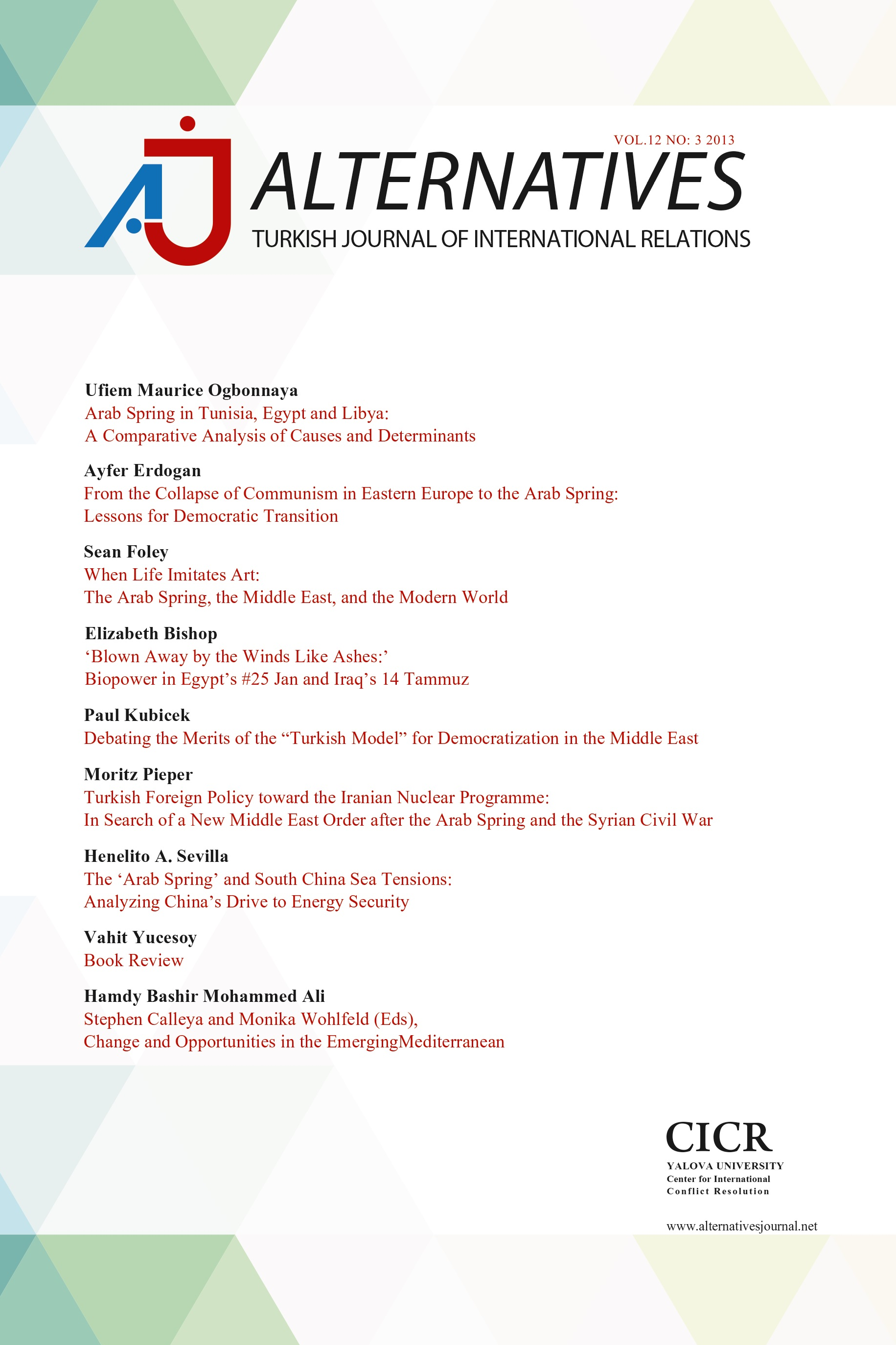Debating the Merits of the 'Turkish Model for Democratization in the Middle East
The 'Turkish model' has been upheld as a positive example for Middle Eastern countries, particularly in light of the Arab Spring. While Turkey is, in many respects, successful'it has a dynamic economy and in recent years has made great strides toward political liberalization' and the current Turkish government has high standing in the Arab world, this paper will argue that the applicability of a 'Turkish model' to other settings is limited. In part, this is due to confusion over what the 'Turkish model' precisely is or should be. For many years, the 'Turkish model' was taken to be Kemalism, or a statist, authoritarian, secular order imposed 'from above' with the goals of modernization and Westernization. More recently, the 'Turkish model' would mean embracing a more moderate-type of political Islam, exemplified by the ruling Justice and Development Party (AKP). While the AKP has proven to be successful in Turkey, it came to power in conditions very different than those that prevail in the Arab world at present. In particular, the AKP has evolved to reconcile itself to secularism in Turkey and embraced a program of Europeanization through accession talks with the European Union, an option not on the table in Arab states. Finally, a comparison of the political culture of Turkey with that in much of the Arab world reveals significant differences in values and priorities between the two cases
- ISSN: 2146-0809
- Yayın Aralığı: Aylık
- Yayıncı: Yalova Üniversitesi
